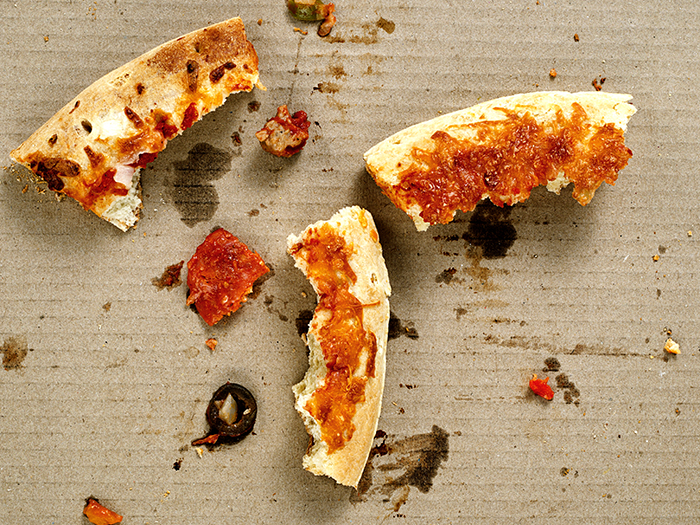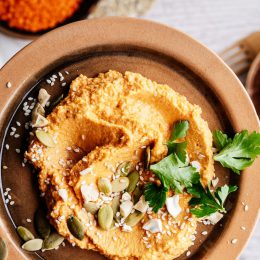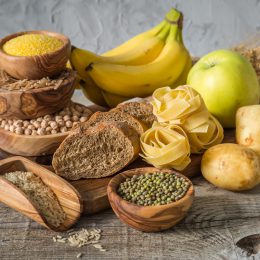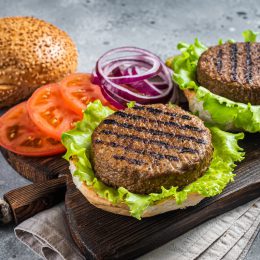5 Foods That Are Messing with Your Sleep
Revamping dinner and late-night snacks can put an end to groggy days.

A good night’s sleep: Everyone wants it, few are getting it.
About half of older adults struggle to fall and stay asleep at least a few nights a week, say researchers from Yale School of Medicine. In fact, insomnia is the most common sleep problem among older adults, according to the National Institute of Aging (NIA).
A likely culprit: your eating habits. When you eat poorly, you’re likely to sleep poorly, says Chris Brantner, a sleep coach at SleepZoo. And when you sleep poorly, you’re more likely to eat poorly.
It’s a vicious cycle. An American Journal of Clinical Nutrition study, for example, found that sleep-deprived people are more likely to consume more calories and choose high-fat foods, compared with those who sleep well.
Your waistline isn’t the only thing in jeopardy when you’re groggy. Lack of sleep can hamper your memory, increase your risk of falls, and affect your blood pressure, according to the NIA. And you probably know your mood and stress levels are impacted by your pillow time.
Fortunately, you can break the cycle by rethinking your dinner and late-night snacks. Here’s how.
Add SilverSneakers to your wellness routine! Classes and events are happening daily at participating gyms, online through SilverSneakers LIVE, and at community centers near you. Activate your free online account to get started.
Skip: Chili, Curry, and Pizza
Fiery dishes are great—enjoy them for lunch, not dinner.
“Spicy foods can cause heartburn, and 80 percent of people who suffer from regular heartburn and acid reflux will experience it at night,” Brantner says.
You may want to bump pizza and other tomato-based dishes over to lunch too. Tomatoes are acidic and can also cause nighttime heartburn, he says.
If heartburn is a regular nighttime occurrence for you, Brantner suggests trying to sleep on your left side. Studies have shown that lying on your left can ease symptoms, while lying on your right aggravates it.
For acid reflux, Brantner says sleeping elevated may help. So instead of lying flat on your back, prop yourself up. That drops your stomach below your throat, helping to keep the acid where it belongs.
Want more tips to cool off? Check out these home remedies to relieve heartburn fast.
Skip: The Drive-Thru
Burgers and other greasy foods can be tough on your digestive system, causing heartburn or general discomfort, Brantner says.
What’s more, consuming high amounts of saturated fat before bed was associated with less time in deep, restorative sleep, according to a 2016 study in the Journal of Clinical Sleep Medicine. Low fiber was also linked to low-quality sleep.
Grilled, baked, or roasted chicken and turkey are better main-dish options. Fiber-rich, protein-packed vegetables like chickpeas and lentils can be another terrific choice. These foods will help you feel full, limit excess fat, and help you sleep better.
Skip: Dessert
Ending the day on a sweet note sounds nice, but that scoop of ice cream or plate of cookies you’re looking forward to can lead to poor sleep quality, says Alicia Galvin Smith, R.D., a nutritionist at Carpathia Collaborative.
Sugary foods cause insulin and blood sugar spikes, she explains. And this can lead to higher levels of the stress hormone cortisol.
“You may have trouble falling asleep, or you’ll wake up during the night,” she adds.
Skip: Crackers and Cereal
“A common bedtime mistake is eating snacks that are primarily processed carbs, like cereal, crackers, or white bread,” Brantner says.
Just like sugary desserts, these foods cause insulin and blood sugar levels to spike, resulting in poor sleep. Plus, carbohydrate-rich foods can mess with levels of melatonin, a hormone that promotes sleep.
That doesn’t mean you need to go to bed hungry. A glass of milk or piece of cheese are two great late-night snacks.
Subscribe to our newsletter
It's quick and easy. You could be one of the 13 million people who are eligible.
Already a member? Click to discover our 15,000+ participating locations.
Follow Us
“The calcium in dairy promotes melatonin production,” Brantner says.
Galvin Smith also suggests having a handful of nuts with shaved coconut or some olives. Both options are low-sugar and contain healthy fats that won’t hamper your slumber.
Skip: A Nightcap
A glass of wine may relax you, but it’ll also shake you awake a few hours later.
Alcohol promotes sleep, but it’s not natural sleep, Brantner explains. After about four hours, your body metabolizes the alcohol, and the sedative effects wear off.
That’s when you experience the “the rebound effect,” he says. You wake up energized, and may find it difficult to fall back asleep. Plus, you probably need to take a nighttime trip to the bathroom.
This disruption causes you to miss out on REM sleep, which is when your brain processes information, makes memories, and sweeps itself of toxins. A 2017 study in Neurology found people who get less REM sleep are more likely to develop dementia or Alzheimer’s later in life.
Women tend to experience alcohol’s negative effects worse than men, Brantner notes. “This could be related to the fact that women’s bodies metabolize alcohol quicker than men’s, so they can reach that second half of disrupted sleep more quickly.”
His solution: If you choose to drink, hit happy hour. Stick to one to two drinks, and drink plenty of water. You’ll help your body metabolize the alcohol before bed.
Check Your SilverSneakers Eligibility Instantly
SilverSneakers members can go to thousands of gyms and fitness locations across the nation, plus take SilverSneakers LIVE online classes that are designed for seniors of all levels. If you have a Medicare Advantage plan, it may include SilverSneakers—at no additional cost. Check your eligibility instantly here.
Already a member? Get your SilverSneakers member ID and exclusive fitness content by activating your online account here.
Not eligible for SilverSneakers? You can still get 200+ free SilverSneakers On-Demand videos and stay in touch with us by creating your online account.





